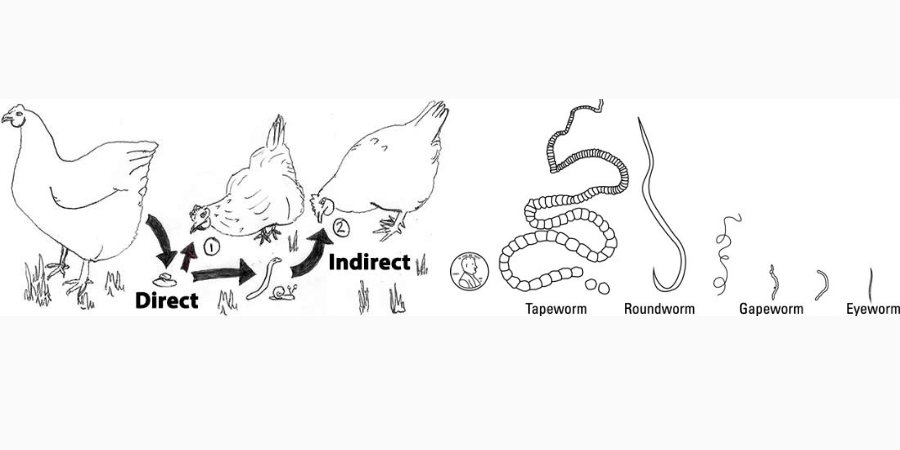Introduction
Deworming is an important part of poultry health care. Backyard poultry can easily become infected with parasites such as worms which can cause a variety of health problems. Deworming involves giving birds medication to kill these parasites and prevent further infection. It is an essential part of keeping your birds healthy and productive.
Causes / Symptoms
Poultry can become infected with parasites through exposure to contaminated soil, water or food. Parasites can cause a variety of symptoms including diarrhea, weight loss, poor egg production and decreased immunity. You may also notice that your birds are less active and less interested in food.
Precautions
To prevent parasite infestations it is important to practice good biosecurity. This includes keeping your birds in clean, dry and well-ventilated housing providing them with clean water and feed and regularly cleaning their living area. It is also important to avoid exposing your birds to wild birds or other animals that may be carrying parasites.
Remedies
There are a variety of medications available for deworming backyard poultry. These include deworming pastes, powders and liquids. Some common active ingredients in these medications include fenbendazole, levamisole and ivermectin. It is important to follow the instructions on the medication carefully and to give the correct dosage based on the weight of your birds.
Advised Medicines
Some commonly used dewormers for poultry include fenbendazole, levamisole and ivermectin. These medications are effective against a variety of parasites including roundworms, tapeworms and threadworms. It is important to follow the instructions on the medication carefully and to use the correct dosage for your birds.
Conclusion
Deworming is an important part of backyard poultry health care. By practicing good biosecurity and regularly deworming your birds you can prevent parasite infestations and keep your birds healthy and productive.
FAQ
Q: How often should I deworm my backyard poultry?
A: It’s generally recommended to deworm your birds every 3-6 months, depending on their age and living conditions.
Q: Can I use natural remedies to deworm my birds?
A: While there are some natural remedies that may help prevent parasite infestations, such as garlic or pumpkin seeds, these are not as effective as medication and should not be relied on as the sole means of deworming.
Q: Can I eat the eggs from dewormed birds?
A: Yes, you can safely eat the eggs from dewormed birds. Just be sure to follow the medication instructions carefully and wait the appropriate amount of time before consuming the eggs.
Q: How do you deworm poultry?
A: Specially made chicken wormers are available at major pet stores and online. They come in liquid, tablet or syrup form and should be added to the chicken’s water every three months. Administering orally is an option, but adding it to their water may be easier.
Q: Does apple cider vinegar deworm chickens?
A: Besides its numerous health advantages, chicken owners often use apple cider vinegar as a preventative measure against worms. Certain worms can quickly infect and weaken chickens, but the low pH of apple cider vinegar can eliminate these parasites and harmful bacteria.



Leave a Reply